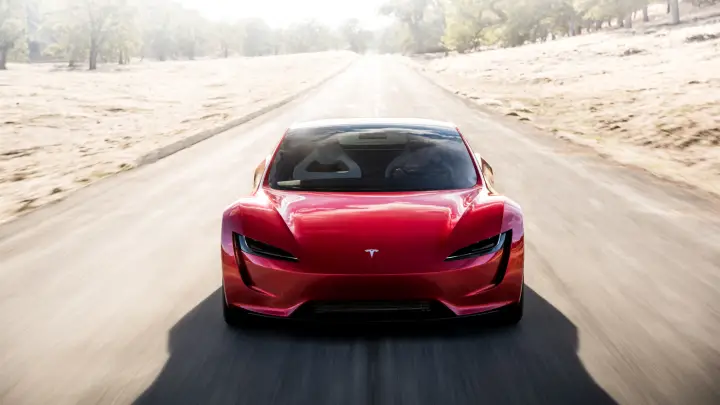In the ever-evolving landscape of automotive technology, 2023 marks a pivotal year in the race for efficiency and sustainability. As electric vehicles (EVs), hybrids, and traditional gas cars vie for dominance, it’s essential to understand their differences in efficiency and cost implications. According to Bloomberg Green, the global electric vehicle market is predicted to grow by 40% in 2023, underscoring a significant shift in consumer preferences. This article will delve into the efficiency trends and cost analyses of EVs, hybrids, and gas cars, providing you with the insights needed to make informed decisions.
Understanding the Efficiency: EVs vs Hybrids vs Gas Cars
EV Efficiency Trends in 2023
Electric vehicles have been at the forefront of automotive innovation, driven by advancements in battery technology and increasing environmental awareness. In 2023, EVs are more efficient than ever, thanks to several key developments:
- Battery Technology: According to Battery University, the latest lithium-ion batteries boast improved energy density, offering up to 400 miles on a single charge for models like the Tesla Model S.
- Charging Infrastructure: As reported by Electrek, fast-charging networks have expanded globally, reducing charging times to as little as 20 minutes for an 80% charge.
- Regenerative Braking: This feature captures energy during braking, enhancing overall efficiency and extending driving range.
Hybrid Cars: A Balanced Approach
Hybrids bridge the gap between electric and gasoline power, offering a balanced approach to efficiency:
- Dual Energy Sources: Combining an internal combustion engine with an electric motor, hybrids like the Toyota Prius improve fuel efficiency by up to 30% compared to traditional gas cars.
- Regenerative Features: Similar to EVs, hybrids utilize regenerative braking, which contributes to their efficiency edge.
- Cost-Effective Transition: For those not ready to fully embrace electric, hybrids offer a cost-effective transition with lower emissions and better fuel economy.
Gasoline Cars: The Traditional Choice
Despite the shift towards electrification, gasoline cars remain a popular choice, primarily due to:
- Infrastructure: Extensive refueling infrastructure ensures convenience and ease of use.
- Lower Initial Costs: Gas cars typically have lower upfront costs compared to EVs and hybrids.
- Performance: Many drivers still prefer the power and driving dynamics of traditional combustion engines.
Cost Analysis: Initial Investment vs Long-term Savings
Electric Vehicles: Higher Upfront, Lower Operating Costs
- Purchase Price: While EVs like the Tesla Model 3 have higher initial costs, federal incentives and tax rebates often offset this. According to Reuters Mobility, the average cost of an EV decreased by 5% in 2023.
- Maintenance and Fuel Savings: EVs have fewer moving parts, leading to lower maintenance costs. Additionally, electricity is cheaper than gasoline, resulting in annual savings of up to $1,000, as noted by the IEA.
Hybrids: The Middle Ground
- Moderate Initial Investment: Hybrids generally cost less than EVs but more than gas cars. Models like the Hyundai Ioniq offer a competitive price point.
- Fuel Efficiency: With better miles per gallon, hybrids save on fuel costs, providing a balanced financial outlook over time.
Gasoline Cars: Short-term Savings, Long-term Costs
- Lower Purchase Price: Gas cars are often more affordable upfront, making them accessible for many buyers.
- Higher Fuel and Maintenance Costs: Over time, the cost of gasoline and regular maintenance can outweigh the initial savings.
Practical Tips for Choosing Your Next Vehicle
- Assess Your Driving Needs: Consider your daily commute, travel habits, and access to charging or refueling infrastructure.
- Calculate Total Cost of Ownership: Factor in purchase price, incentives, fuel costs, and maintenance.
- Explore Incentives: Research available federal and state incentives for EVs and hybrids.
- Test Drive Options: Experience the driving dynamics of each type before making a decision.
Conclusion: Making the Right Choice for Your Future
As we navigate the automotive landscape of 2023, the choice between EVs, hybrids, and gas cars hinges on individual needs and priorities. Electric vehicles offer unparalleled efficiency and long-term savings, hybrids provide a balanced transition, and gas cars remain a viable choice for those valuing initial affordability. Which path will you choose as the future of transportation unfolds? Embrace the change, weigh your options, and drive towards a more sustainable future. With technology advancing rapidly, the possibilities are endless and exciting.

